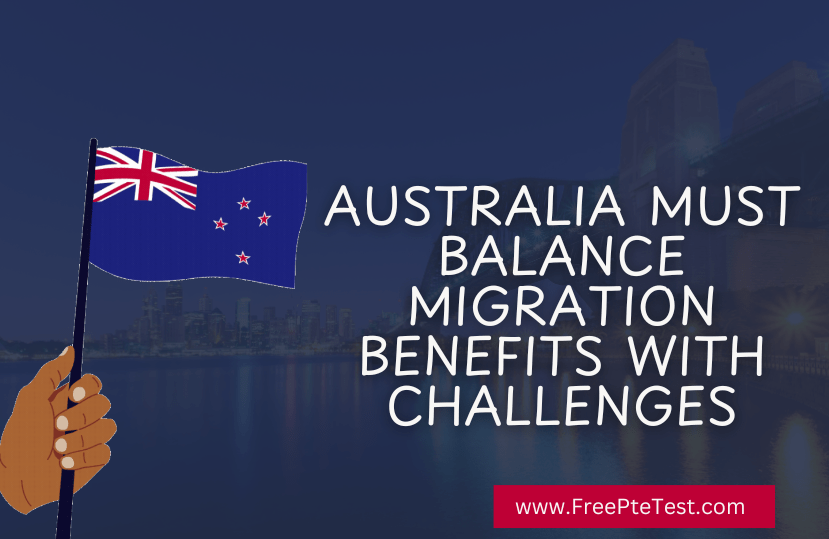Australia Migration Benefits: When the economy is struggling, we often look for someone to blame, and things aren’t going well right now. The Australia GDP figures released on Wednesday show that the economy has taken a hit, and people’s incomes are going down.
Unemployment has been rising for almost a year, and house prices are soaring, making our biggest cities some of the most expensive in the world.
Earlier this year, Kristalina Georgieva, the head of the International Monetary Fund, said, “Many people feel that the economy isn’t working for them.”
People are not just worried but also angry. This frustration is visible in society and politics, leading to more division and instability. One of the most obvious places this anger shows up is in the ongoing debate about migration in Australia.
Australia has the second-highest percentage of foreign-born residents among OECD countries, with only Luxembourg having more. Our migrant population is nearly 30% above the OECD average, so it’s no wonder migration is such a heated topic.
However, when discussing migration from an economic perspective, the conversation must be more thoughtful and detailed than what we usually hear in Parliament, the media, or in casual conversations.
Many studies have examined the economic effects of migration, and they often tell different stories. There are some Tip to Find Best Australian Immigration Lawyers, this information will definitely helpful to you. However, from different viewpoints, migration is vital to Australia’s economic and cultural well-being.
The economy is driven by three main factors: population, participation, and productivity. Migration affects all of these areas.
Over the past two years, population growth has kept the economy afloat, which in Australia depends on migration. But it’s not clear if this outcome is good for everyone.
Just because population growth leads to more spending on things like milk and toothbrushes, which boosts GDP, doesn’t mean we’re better off. This week’s GDP figures showed how the economy can grow while individual incomes shrink.
Migrants’ contributions to productivity and participation bring the biggest economic benefits. Participation rates measure the percentage of the working-age population employed or looking for work.
The more people participate, the more the economy grows, raising living standards and reducing reliance on government support. This is especially important for the future, given our aging population.
According to the 2021 census, recent migrants had a participation rate of 72.4%, compared to 66.3% for Australian-born people.
Migrants also help improve productivity, which has been weak since the pandemic. Research by the OECD and the Centre for Population shows that areas with more migrants tend to have higher wages and increased productivity.
Migration was found to boost the productivity of Australian-born workers. Productivity gains help grow the economy in a way that benefits everyone, unlike the short-term boost from population growth alone.
Besides economic benefits, migration also enriches our communities through cultural diversity.
There are different types of migration, and some, like skilled migrants, have a bigger economic impact than others, such as family reunions. We must be careful when creating migration policies, including deciding which types of migrants to accept and setting overall targets.
After the pandemic, increasing migration was necessary to fill classrooms, support the labour force, and restore population levels. Now, it’s time to aim for more sustainable numbers. But we need to be careful with our decisions.
The main reason for the housing crisis is that supply cannot keep up with demand. Trying to fix housing affordability by reducing migration targets will not solve the real issues and could hurt the economy.
It’s unclear if lower productivity and participation costs would be worth it. If the problem is a lack of housing, we should focus on planning and tax policies rather than cutting migration.
Migration is a key part of Australia’s cultural and economic identity and shouldn’t be dismissed without careful consideration.



